In today’s rapidly evolving healthcare environment, QR codes for healthcare are transforming how hospitals, clinics, and medical professionals manage information and engage patients. By using QR codes, healthcare providers can bridge the gap between physical and digital records, making it easier to scan, access, and share vital information in real time.
A single QR code can link to secure portals, educational materials, or appointment systems — streamlining processes for both patients and staff. These solutions improve efficiency, increase patient engagement, and help medical teams deliver faster, more informed care.
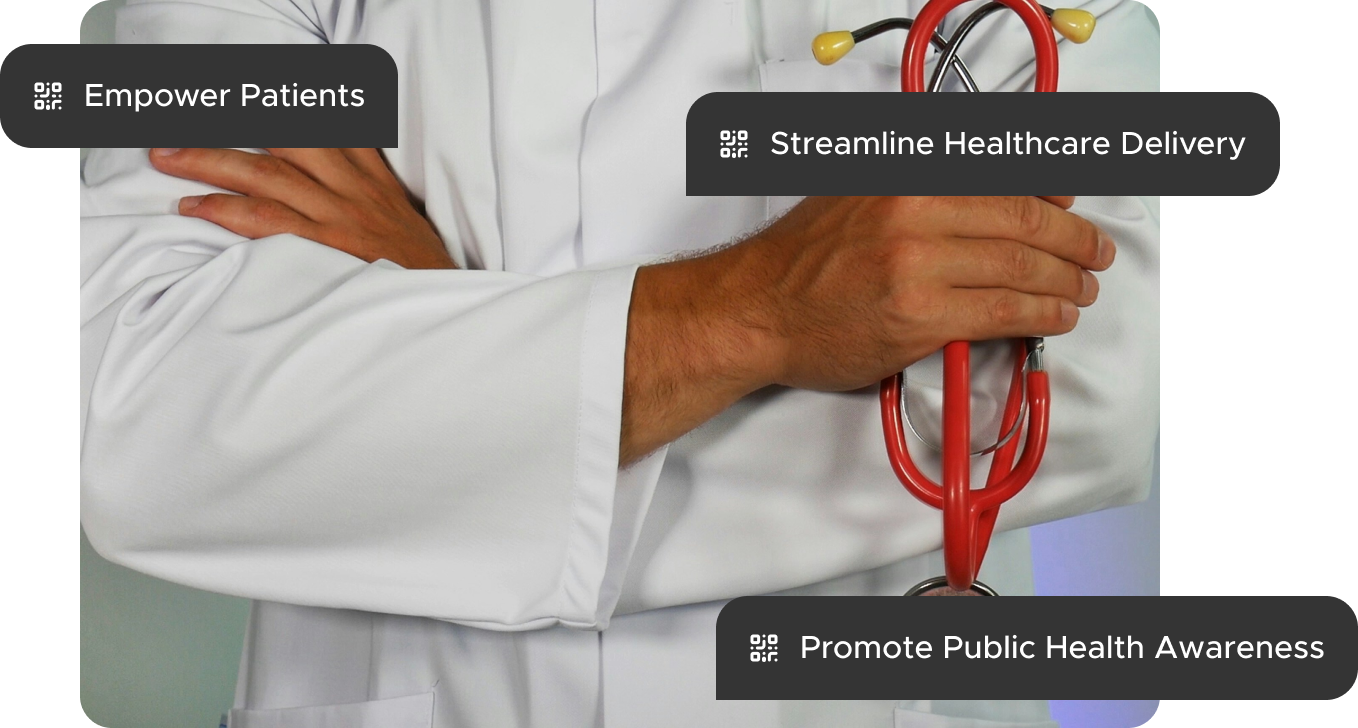
QR codes are finding a new purpose in healthcare. They offer a quick and easy way to bridge the gap between physical and digital information, streamlining processes and empowering patients and healthcare providers.
QR codes give patients control and clarity. A quick scan can link to treatment details, educational resources, or post-visit instructions. By making care guides and tutorials accessible through QR codes for healthcare, providers empower patients to better understand their diagnoses and treatment plans — increasing satisfaction and engagement.
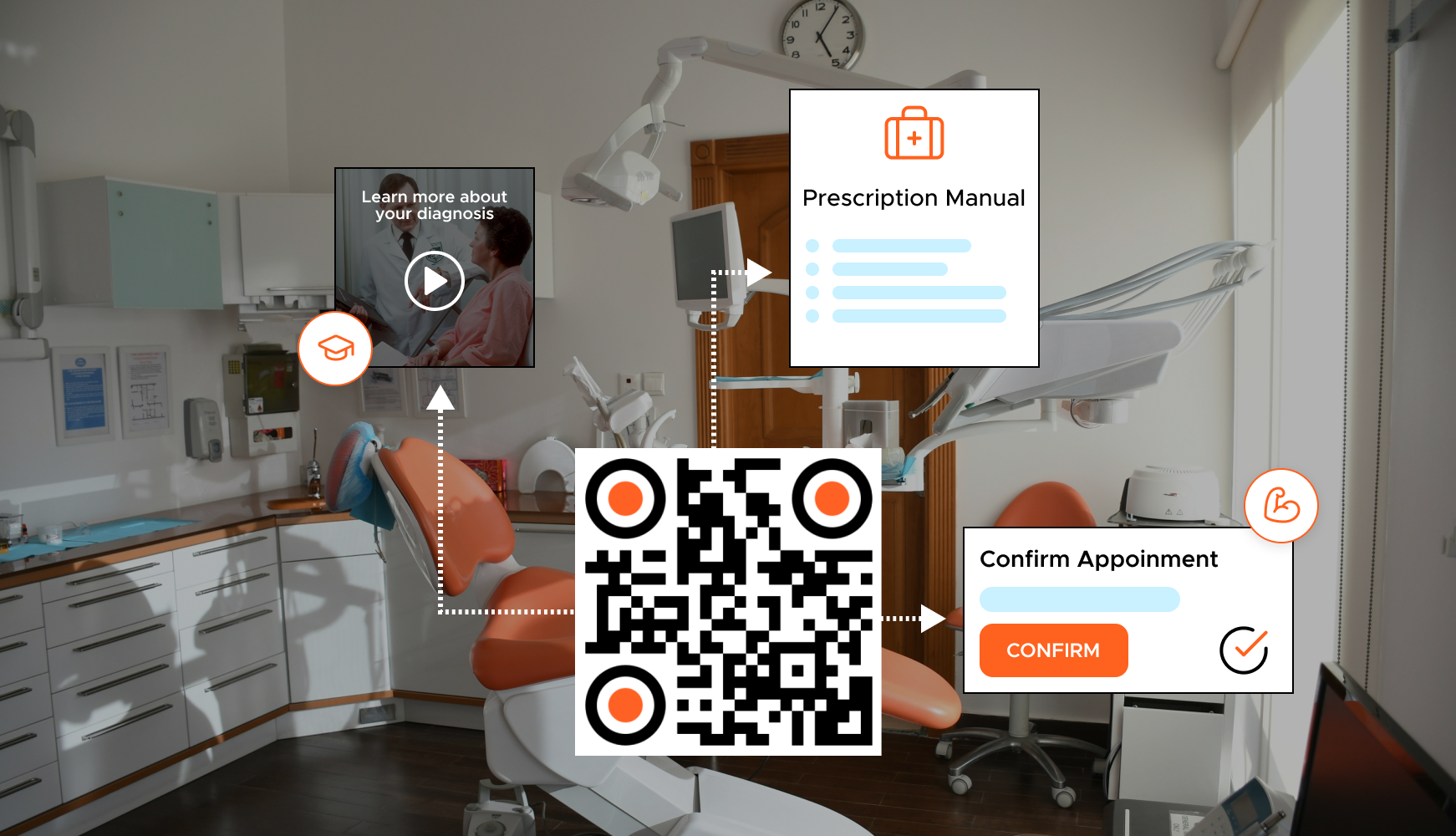
Efficiency is critical in healthcare. Nurses and clinicians can scan QR codes on wristbands or medical devices to instantly retrieve medical history or usage guides. This reduces human error, improves accuracy, and ensures teams have the data they need when they need it.
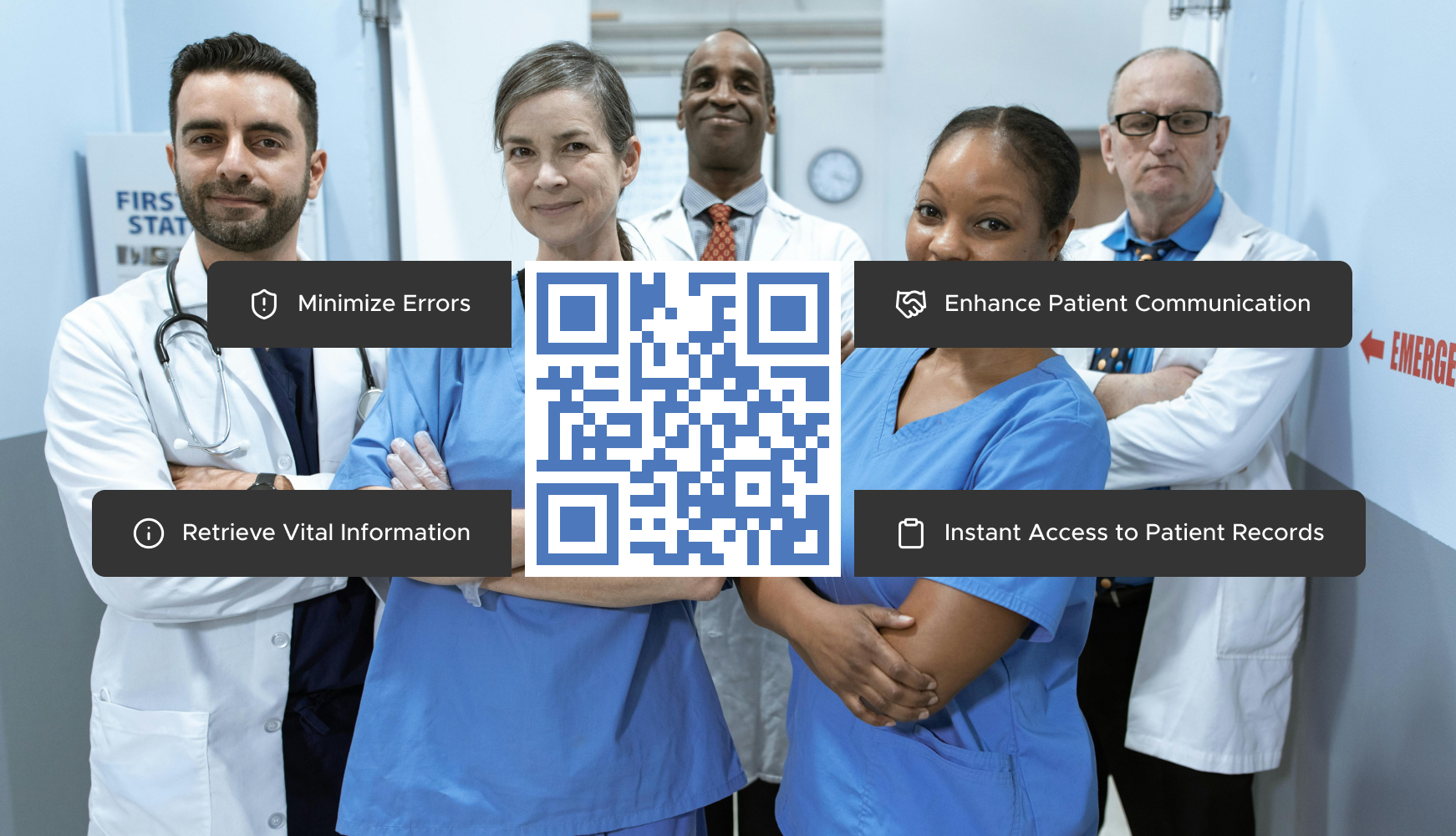
Using QR codes minimizes paperwork, saves time, and enhances productivity. From linking to equipment manuals to digitizing internal forms, QR-based solutions make administrative tasks easier and allow staff to focus on patient care.
Modern QR code generators allow hospitals to create dynamic QR codes that connect to encrypted online portals. Instead of storing data within the code, these tools ensure compliance and security while maintaining quick, reliable contact between providers and patients.
The versatility of QR codes allows for various applications within the healthcare landscape, such as the following:
QR codes for healthcare improve safety by giving doctors and nurses instant access to medical data. A simple scan on a patient’s wristband can reveal vital signs, allergies, and history — ensuring quick, informed decisions and seamless team coordination.
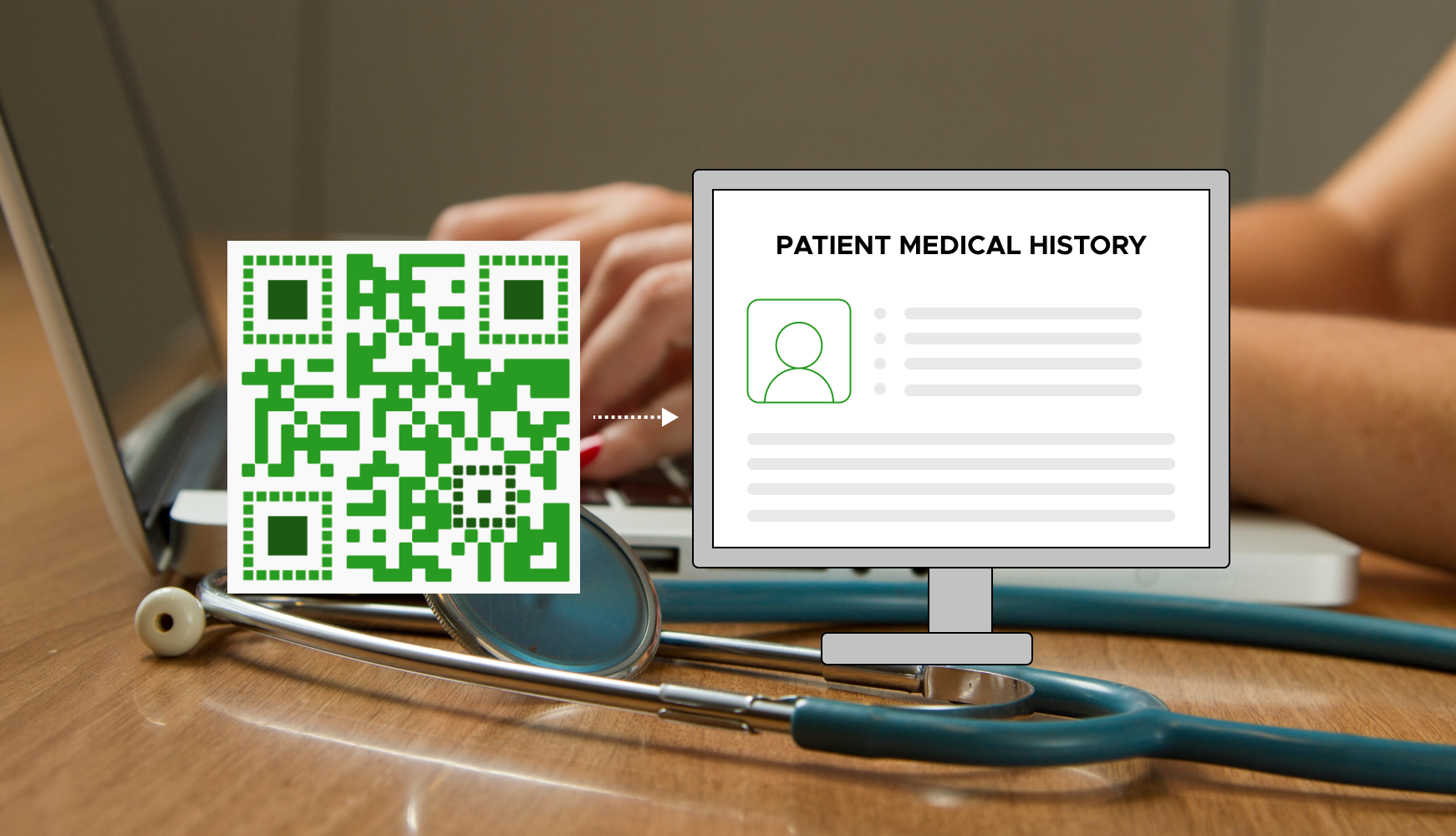
Add QR codes to prescriptions or packaging to help patients verify authenticity, dosage, and expiration. Scanning the code can open video instructions or digital leaflets, supporting proper use and boosting patient engagement.
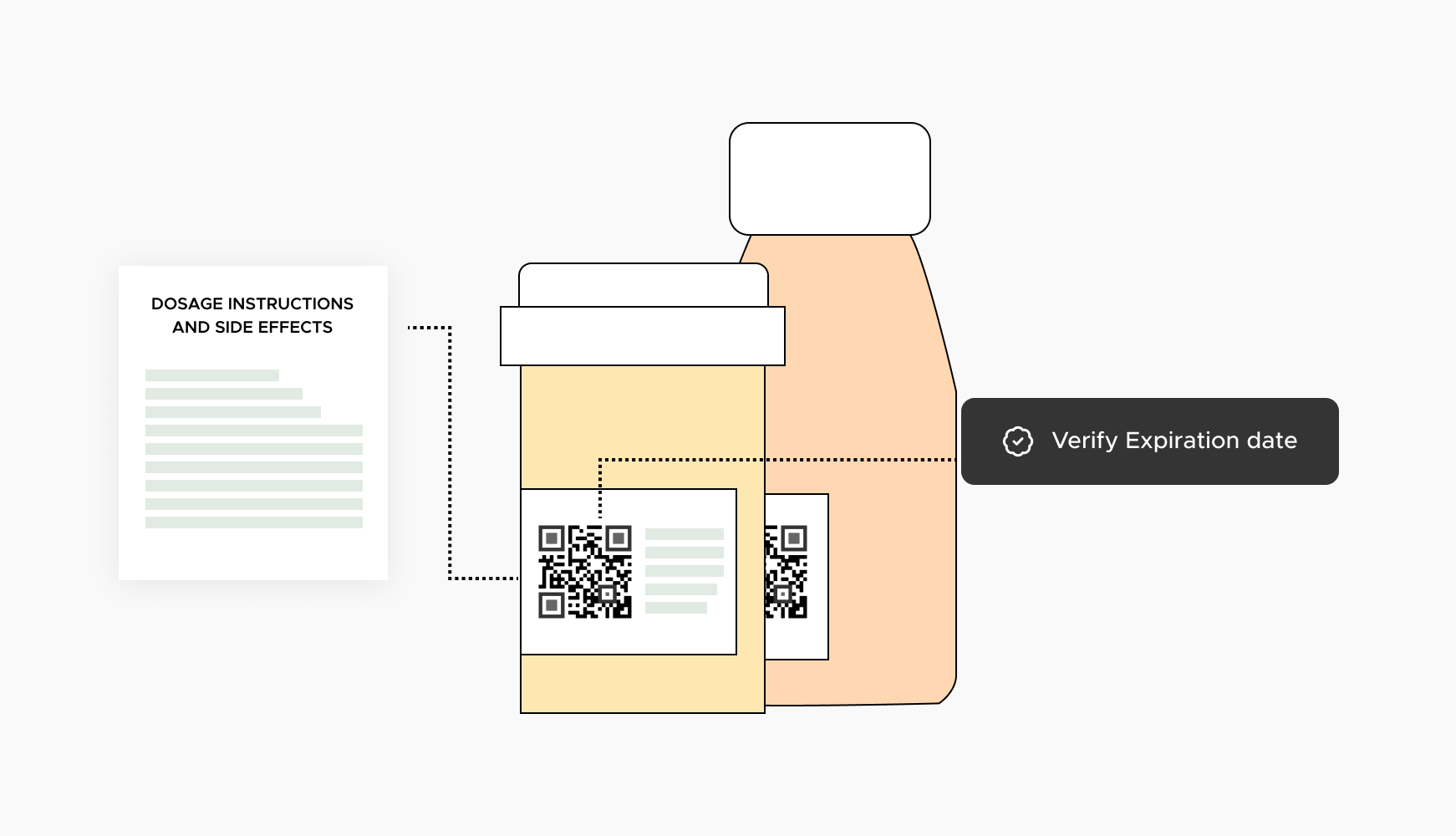
Simplify scheduling with QR codes on appointment cards or discharge papers. When patients scan, they can book follow-ups, check results, or contact their doctor via secure email or online chat — improving engagement and accessibility for everyone.
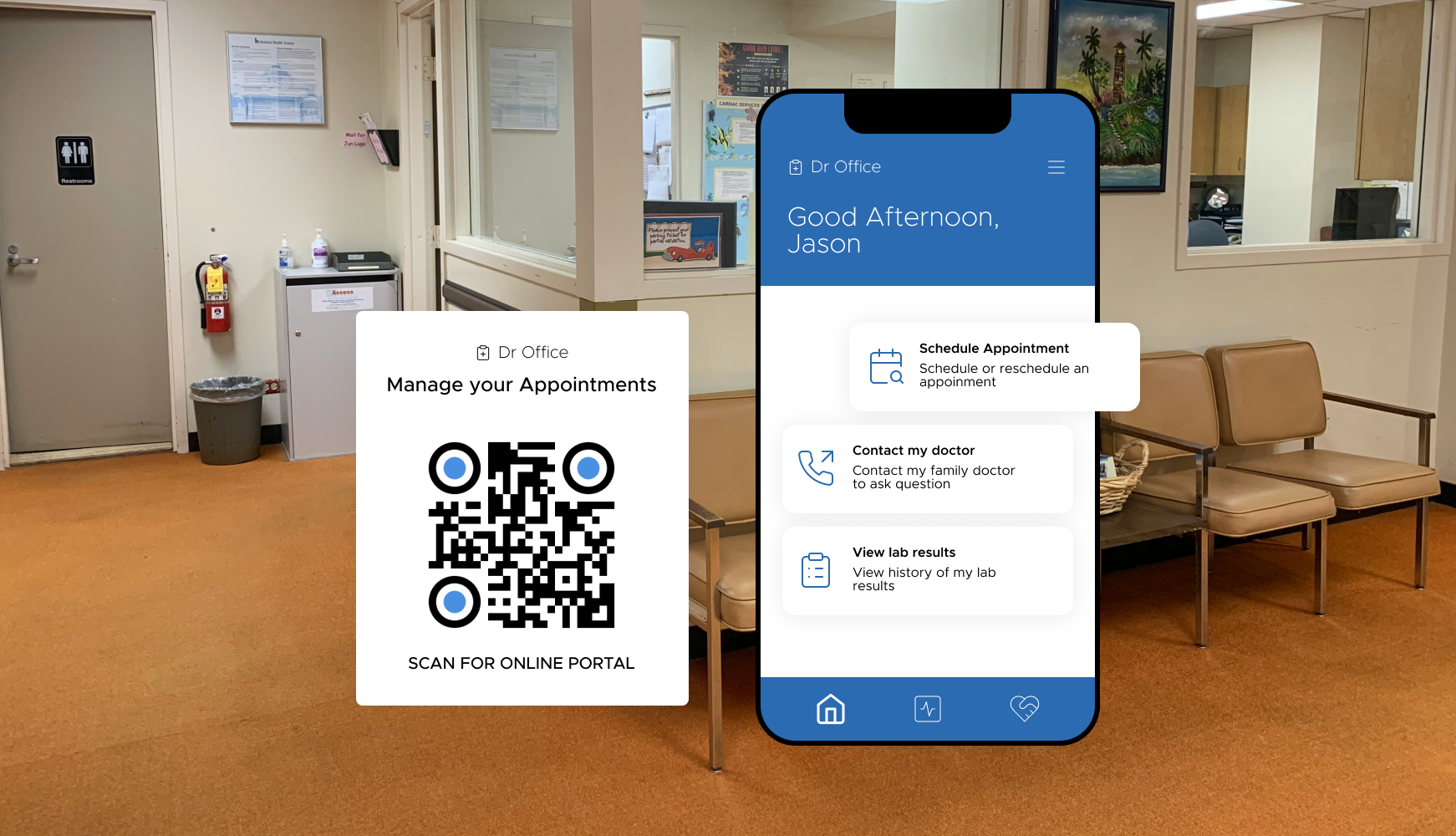
Creating secure and efficient QR codes for healthcare is easy with the QRStuff QR Code Generator. Follow these simple steps:
Select a trusted tool like QRStuff to create QR codes that meet healthcare data privacy requirements. Our free QR code generator supports dynamic QR codes, encryption, and design customization for hospitals and clinics.
Pick a format based on your need:
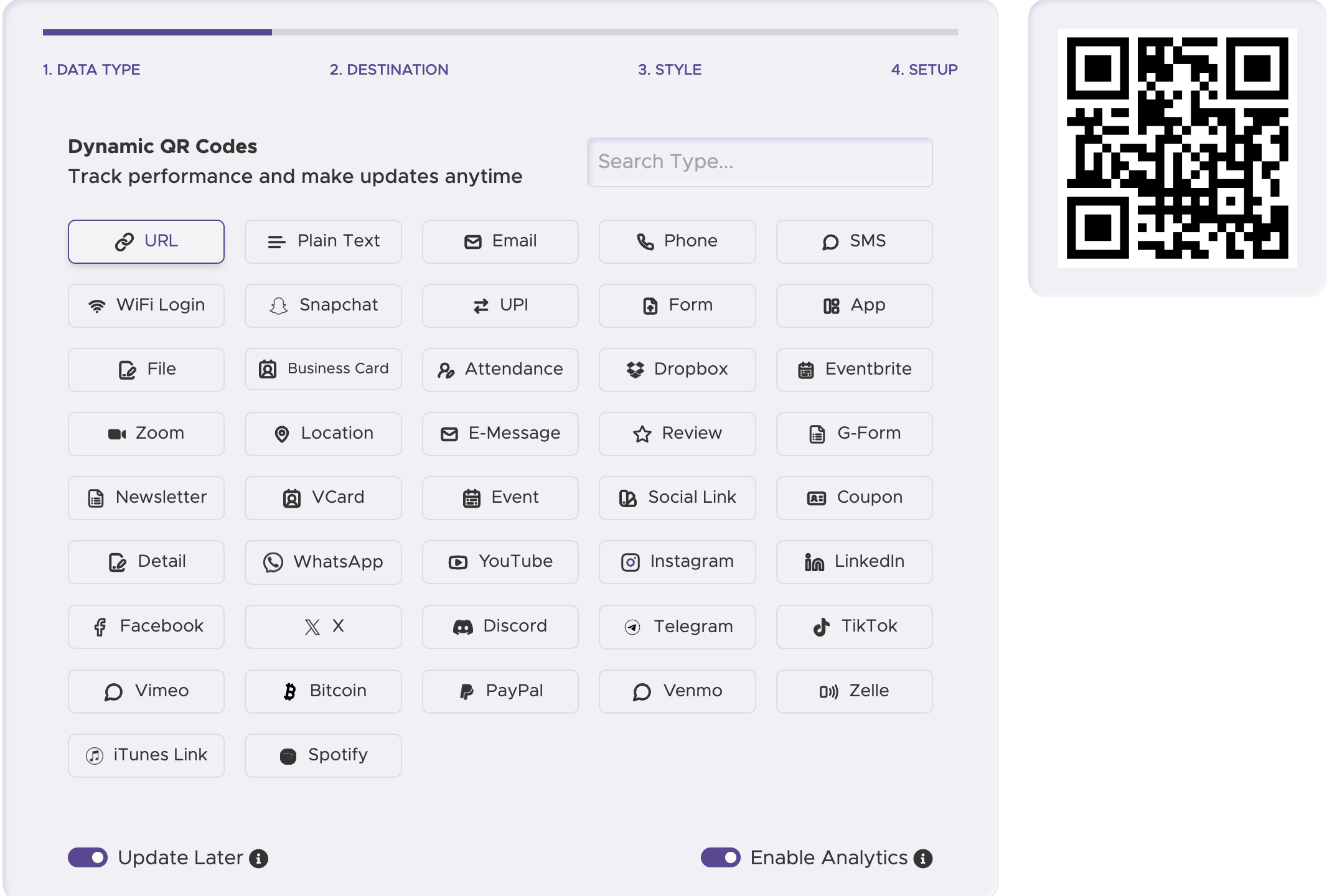
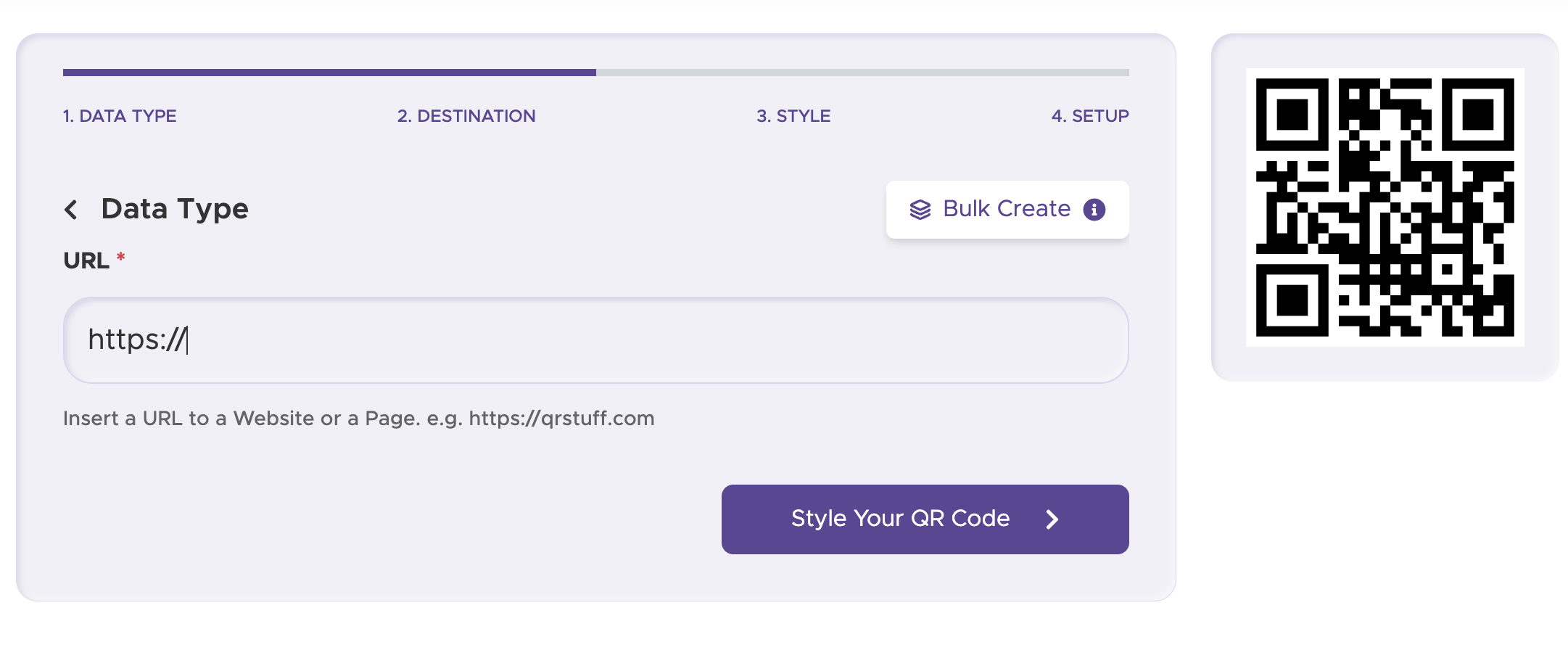
Customize your QR code with your clinic’s logo, colours, or brand identity. Clear design builds trust and makes the scan process simple and recognizable for patients.
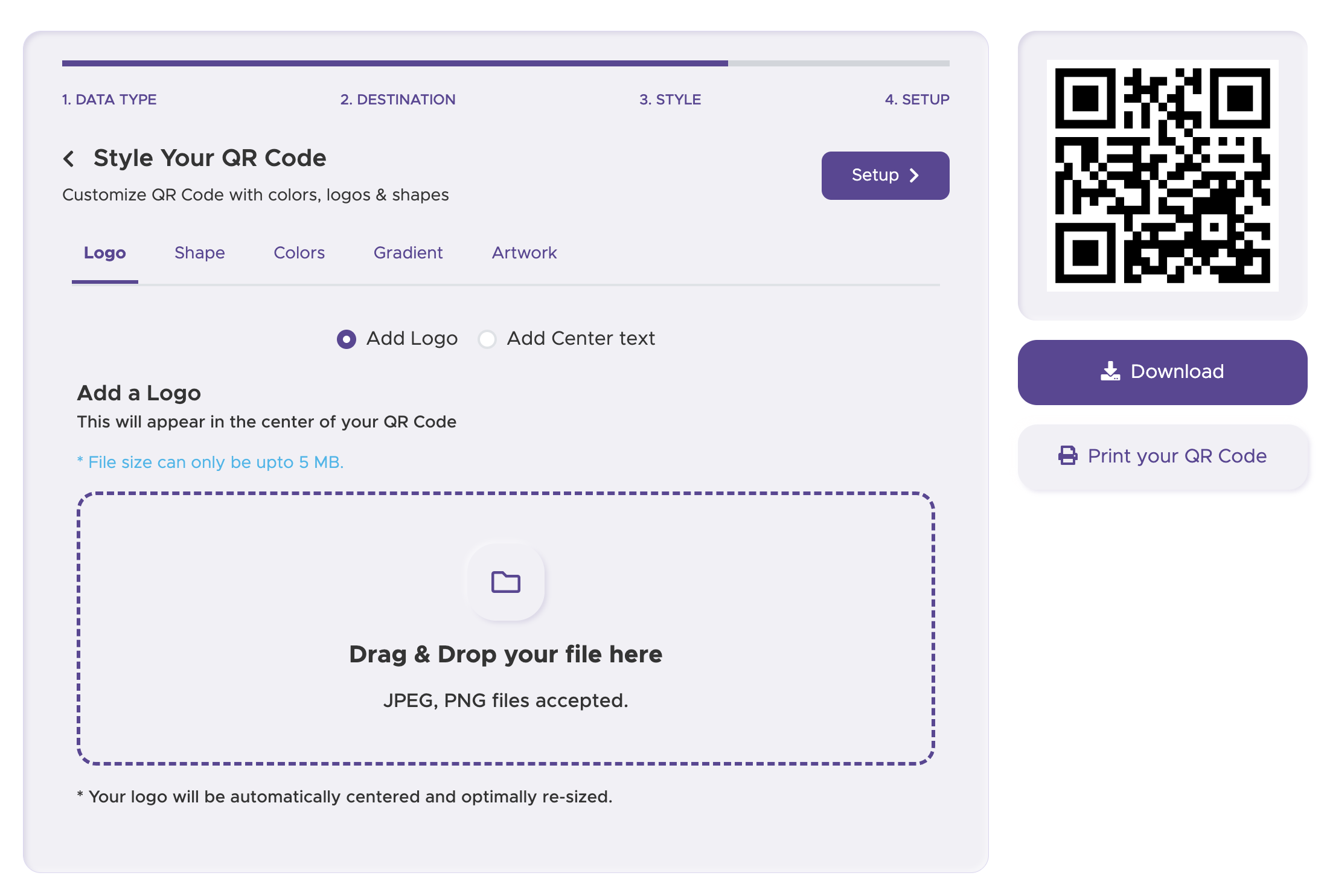
Once designed, generate QR codes in high-resolution for printed materials like wristbands, appointment cards, or posters. Always use dynamic QR codes so you can update links later — a crucial feature for evolving medical information.
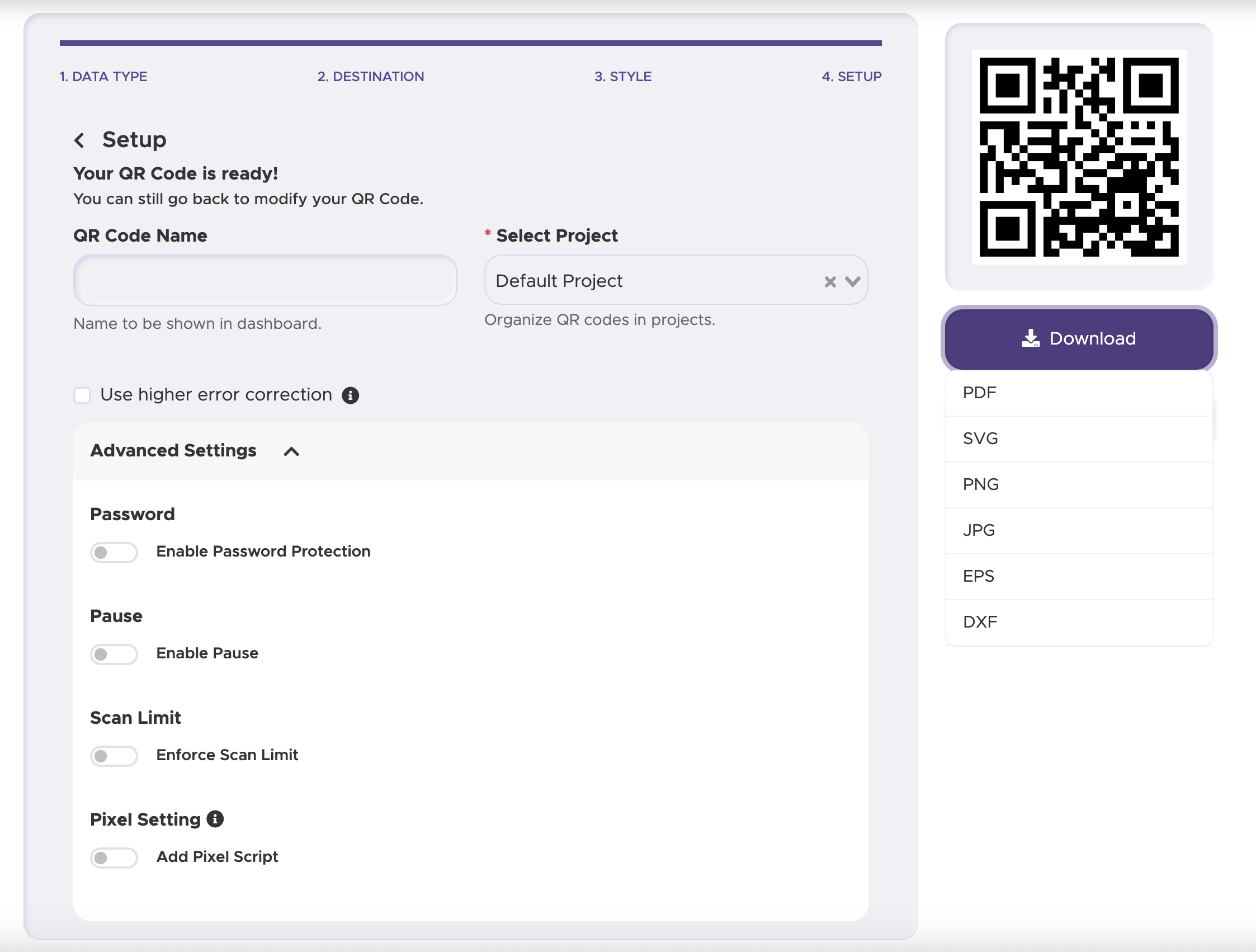
Always link to secure, encrypted sites — never store confidential data directly in the QR code. Use HIPAA-compliant or GDPR-approved solutions to maintain patient privacy.
Use QR codes to connect patients with multilingual materials, how-to videos, or follow-up support content. These tools help improve understanding and encourage self-managed care.
Add simple prompts like “Scan for Aftercare Details” or “Scan to Book a Follow-Up” so patients understand what each code does.
Ensure your QR codes are large, clear, and high-contrast for easy scanning. This guarantees reliability across devices and medical environments.
Encourage healthcare teams to integrate QR codes into everyday workflows — from patient charts to feedback forms — to improve collaboration and patient engagement.
Improve patient engagement and streamline care with QR codes for healthcare.
Empower your medical team, simplify contact with patients, and modernize your processes with a secure, easy-to-use free QR code generator.
Start creating free QR codes today, or subscribe to unlock full design capabilities and advanced analytics
Yes, you can create QR codes for essential Healthcare businesses needs like promotional offers, or customer feedback forms using our free QR code generator. However, customization options, such as branded QR codes or detailed scan analytics, require a subscription.
A subscription unlocks advanced features tailored to Healthcare businesses, including dynamic QR codes that allow real-time updates, detailed scan analytics to track customer engagement, and customization tools to align QR codes with your branding. These features help improve efficiency, enhance customer experiences, and strengthen your business's overall impact. See the full list of features associated with each subscription here.
You can reach out to us at support@qrstuff.com for assistance. Free users receive email support with responses typically provided within 12–24 hours. Subscribers enjoy priority support via email, phone, or live chat for faster resolutions. To help us assist you efficiently, please include your account details, QR code ID, and a brief description of the issue when contacting support.